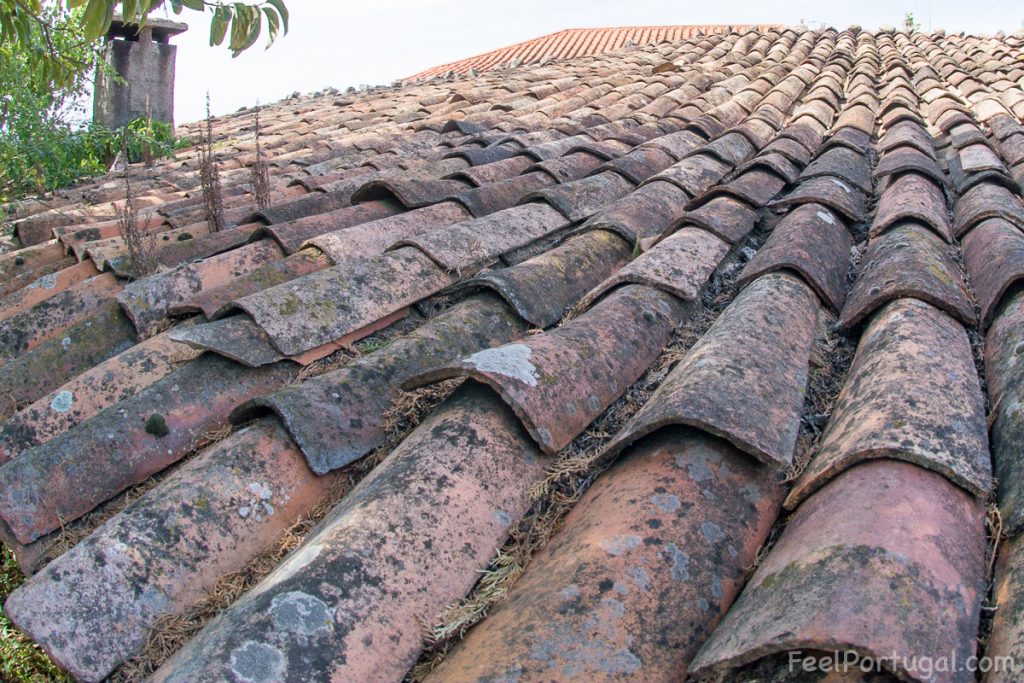Many times I heard the stories. Tales of men working in the fields and others harvesting cork on our cousin’s family cork farm. If not from my father, I would hear tales from my grandfather and uncle or aunt. It wasn’t just stories about farm workers, it was memories that evoked passion and “saudades” of the homeland. Memories of eating freshly roasted castanhas and favas ricas as a snack were always brought up.
You could hear the longing in my father’s voice, his desire to return for a visit. You could taste passion in his cooking, and you could feel it in his soul as he spoke about his hometown of Galveias and the Alentejo countryside, the fields of sunflowers, wildflowers and wheat fields of Portugal’s breadbasket, swaying in the breeze and the picking of “pinhões” (pine nuts) and olives.
I soaked up all the stories like a sponge. Then one summer, as a young girl, I finally got the opportunity to go with my grandparents and brothers to feel first hand this passion I longed to comprehend. Finally, to experience something different, something other than the crochet and darning lessons of my grandmother, just excited me.
I remember only too well the long bumpy ride from Lisbon to Santarem, then over the Tagus River to my father’s hometown of Galveias, a small town just a bit south of Ponte de Sor. We traveled past the wheat fields and fields of tall sunflowers in bloom with their faces kissing the blue Alentejo sky. A precarious road, winding up what seemed like a mountain, required my uncle to toot his horn to alert any drivers and donkey carts around the sharp bend that we were approaching.
The exciting ride came to an end as we entered Galveias. Two doors down from the elementary school, which was in the town square, stood my father’s childhood home. Made of stone, it had a humongous fireplace in the kitchen which served for heating the tiny three-room house as well as for cooking over the open flames. A single faucet of running water came in from the street-side wall. Thick wooden shutters that covered the windows at night did not block the sound of donkeys passing by the window in the street.
In the days that followed, I got to walk the streets my father walked, to take in the surroundings, feed the chickens and breathe in the Alentejo life. We often joined the workers in the fields and really got an appreciation for their hard work.
My younger brother found great joy riding one of the donkeys back to the town and we found laughter as the donkey shot out cannon balls from his backside as he walked. At night, my brothers and I shared one of the bedrooms, sleeping on straw mattresses, shifting the hay until we thought we were comfortable. It was there in the Alentejo, at 12 years old, I not only learned about my father’s soul, but I first learned to make Farofias, the Portuguese version of Floating Islands, which enhanced my enthusiasm to learn all I could of the food of my heritage.
Somehow, I can’t quite pinpoint the exact moment on that trip when my soul was touched but I was bit. Not by a bug, from the straw mattress, mind you, but this heart-felt, soul invading feeling for which I am at a loss of words. Was it finally the understanding of my father’s passion? Was it the fresh air, the blue skies, the people, the food, the land of the Alentejo? My soul’s connection? All of it?
Eight years later in the cold month of November, this feeling lured me back. As a young bride with new husband in tow, we went for a quick visit since, with so much to see in Portugal, time was limited. Not yet bitten by the bug of the Alentejo, my new husband, upon learning of just a single taxi and a single telephone mounted on a pole in the center of town, quietly whispered, “Is there any way out of town tonight?
Well, we spent the night in that same old unheated bedroom, on the same straw mattress, fully clothed, coats on and huddled under blankets as we stared up at the roof tiles that exposed slivers of the star-lit sky. How is that for a romantic honeymoon night?
Despite the fact, the only external heat was in the kitchen fireplace and only our bodies to keep us warm, we survived that night. I even enjoyed the experience of cooking in that old fireplace, making dinner with a chicken from the backyard.
Today, even though chicken from the backyard might still be the norm in some places, the Alentejo, known for some of the best bread, olives, olive oils and cheeses, has expanded its number of vineyards which are producing wonderful new wines. Cork farms like my cousin’s continue to produce cork not only for wine bottles but for the expanded use of cork for handbags, cork floor and wall tiles, fabric, jewelry and so on.
Expansion of farm products, updated transporting of goods and a multitude of business ventures are evident. In addition, lifestyles have changed with the young. It isn’t unusual now to see multiple bikers pedaling swiftly in a road race along the road while at the same time a horse drawn, hay filled wagon of gypsies is traveling by.
There is even a waterpark in my father’s home town. Now increasingly hotels are more contemporary in nature and some are providing spas and global culinary creations like at the L’and Vineyards Resort in Montemor-o-Novo, which serves ravioli with a spinach foam sauce (I think my Pai might be rolling over!).
We have returned many times over the years, and my husband, whose family is from the island of Graciosa in the Azores, embraces our mainland Portuguese culture too. I may have been born in the United States, but my soul feels the passion, the longing my father exposed me too, the indescribable pull like a siren’s song of a Fado, calling me home as though I had been born there.With each visit I have made over the years, my passion grew and continues to grow for Portugal as a whole but especially for the Alentejo. The Alentejo land, the sunsets, the people, the food, the Fados, and my father’s memories and stories, are all connected to my soul. It gives me saudades, every time I leave.
Ana Patuleia Ortins is the author of Portuguese Homestyle Cooking and Authentic Portuguese Cooking and frequent contributor to Feel Portugal. She has spent over 30 years dedicated to teaching the flavors of Portuguese cuisine to others. Follow her on Portuguesecooking.com
Ver Artigo em Português
Alentejo De Meu Pai
Tantas vezes que ouvi estas histórias. Contos dos homens que trabalhavam nos campos e de outros que colhiam a cortiça nos montados da família da nossa prima. Se não ouvisse as historias do meu pai, eu ouviria as histórias do meu avô, ou as dos meus tios ou tias. Não eram apenas histórias sobre trabalhadores agrícolas, eram memórias que evocavam paixões e saudades da pátria. Memórias sempre bem presentes de comer castanhas acabadas de torrar, e dos lanches de fava rica,
Podia ouvir a saudade na voz do meu pai, o seu desejo de voltar um dia para uma visita. Podia saborear a sua paixão pela culinária, e podia senti-lo na sua alma enquanto falava de Galveias a sua terra natal. Assim como quando falava do campo alentejano, dos campos de girassóis, das flores silvestres, e dos campos de trigo balançando com a brisa, que eram o celeiro de Portugal, não esquecendo a colheita das azeitonas e dos pinhões.
Eu absorvi todas estas histórias como uma esponja. Então, num verão, enquanto jovem, finalmente tive a oportunidade de ir ao Alentejo com os meus avós e irmãos e sentir de perto toda essa paixão que eu desejava compreender. Também para finalmente experimentar algo diferente que me excitasse, algo além das lições de crochê e de bordado da minha avó.
Ana Patuleia Ortins sentada à direita de seu pai, Rufino Patuleia
Lembro-me muito bem da longa e acidentada viagem de Lisboa a Santarém, passando pelo rio Tejo até à terra natal do meu pai, Galveias, uma pequena aldeia um pouco ao sul de Ponte de Sor. Durante a viagem passamos pelos campos de trigo e pelos campos de girassóis altos em flor, como se os rostos beijassem o céu azul do Alentejo. Uma estrada precária, terminando o que parecia ser uma montanha, exigia que o meu tio apitasse a buzina para alertar os outros motoristas e os carros de burro antes de entrar na curva que se aproximava.
A excitante viagem chegou ao fim quando entramos em Galveias. A casa de infância do meu pai ficava na praça da aldeia, duas portas depois da escola primária, era feita de pedra, tinha uma enorme lareira na cozinha que servia para aquecer a minúscula casa de três quartos, e também para cozinhar sobre as chamas. Uma única torneira de água corrente vinha da parede lateral à rua. As persianas grossas de madeira que cobriam as janelas não bloqueavam o som de burros que passavam á noitinha junto à janela da rua.
Nos dias que se seguiram, andei pelas ruas que o meu pai andava, para absorver o ambiente, alimentar as galinhas e respirar a vida alentejana. Muitas vezes nos juntamos aos trabalhadores nos campos e realmente apreciamos o seu trabalho duro.
O meu irmão mais novo ficava todo contente quando montava um dos burros de volta para a aldeia e achavamos engraçado quando o burro atirava “balas de canhão” pelas suas traseiras enquanto andava. À noite, os meus irmãos e eu compartilhavamos um dos quartos, dormindo num colchão de palha, e acomodavamos a palha até nos sentirmos confortáveis.
Foi lá no Alentejo, aos 12 anos, que não só aprendi sobre os sentimentos e emoções do meu pai, como também aprendi pela primeira vez a fazer Farofias, a versão portuguesa das “Floating Islands”. Isso aumentou o meu entusiasmo para aprender tudo o que podia sobre a culinária dos meus antepassados.
Farofias – Uma sobremesa portuguesa feita com claras de ovos escalfadas
De alguma forma, não consigo identificar exatamente o momento exato daquela viagem em que a minha alma foi tocada, mas senti-me mordida, não por um inseto, do colchão de palha, mas por este sentimento no coração. foi uma sensação na alma da qual não consigo descrever. Podia ter sido o entendimento sobre a paixão do meu pai? Podia ter sido o ar fresco, o céu azul, o povo, a comida, a terra do Alentejo? A conexão da minha alma? Ou tudo isto?
Oito anos depois, no mês frio de Novembro, este sentimento atraiu-me de volta… Como uma jovem noiva com o meu marido a reboque, fizemos uma visita rápida, pois, com tanta coisa para ver em Portugal, o tempo era limitado. O meu marido ainda não tinha sido mordido pelo insecto do Alentejo, e quando soube do único táxi e do único telefone montado num poste no centro da aldeia, sussurrou baixinho: – Há alguma forma de sair da aldeia hoje à noite?
Bem, passamos a noite naquele mesmo quarto sem aquecimento, no mesmo colchão de palha, totalmente vestidos, com os casacos e enrolados debaixo dos cobertores amontoados, enquanto olhávamos para as telhas que expunham o raiar do céu estrelado. O que dizem a isto como noite romântica de lua de mel?
Apesar do fato do único calor externo estar na lareira da cozinha e no calor dos nossos corpos para nos mantermos aquecidos, sobrevivemos àquela noite. Eu até gostei da experiência de cozinhar naquela velha lareira, fazendo o jantar com um frango apanhado no quintal.
Hoje, embora o frango do quintal possa ainda ser a norma em alguns locais, o Alentejo, continua a ser conhecido pela melhor qualidade de pão, azeitonas, azeites e queijos, e expandiu o seu número de vinhas e está a produzir novos vinhos maravilhosos.
Vinha alentejana
As explorações de cortiça, como as da minha prima, continuam a produzir cortiça não só para engarrafar o vinho, mas também para o uso alargado noutros produtos como; pavimentos de cortiça, azulejos, tecidos, malas de mão, jóias entre outros.
A expansão dos produtos agrícolas, o desenvolvimento do transporte de mercadorias e uma infinidade de empreendimentos comerciais são evidentes. Além disso, o estilo de vida dos jovens mudou. É muito comum ver vários ciclistas a pedalar ao longo da estrada, enquanto ao mesmo tempo está a passsar.uma carroça de ciganos, cheia de feno e puxada a cavalo.
Existe até um parque aquático na terra natal do meu pai. Agora, cada vez mais os hotéis são mais contemporâneos e alguns oferecem spas e criações gastronômicas globais, como no L’and Vineyards Resort em Montemor-o-Novo, que serve um ravioli com molho de espinafre (acho que meu Pai deve de estar rolando!).
Tronco de sobreiro descascado
Regressámos muitas vezes ao longo dos anos, e o meu marido, cuja família é da ilha da Graciosa nos Açores, também abraçou a nossa cultura continental portuguesa. Eu posso ter nascido nos Estados Unidos, mas a minha alma sente a paixão, e também o desejo que o meu pai me expôs, è uma atração indescritível é como o fado de uma sereia, que me chama a casa como se eu lá tivesse nascido.
Em cada visita que fiz ao longo destes anos, a minha paixão por Portugal foi crescendo e continua a crescer, mas especialmente pelo Alentejo. A terra alentejana, o pôr-do-sol, as pessoas, a comida, os fados, as memórias e histórias do meu pai, estão todas ligadas à minha alma, ficando com imensas saudades, todas as vezes que parto.
Ana Patuleia Ortins – autora de livros culinaria Portuguese Homestyle Cooking e Authentic Portuguese Cooking . Ela e colaboradora de Feel Portugal. Ela passou mais de 30 anos a ensino os sabores de culinaria Portuguesa as outros. Seguir ela na Portuguesecooking.com


